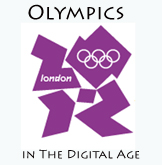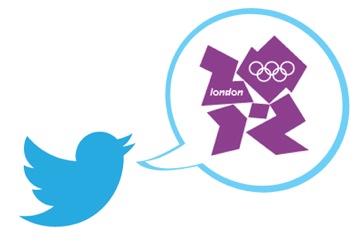Editor’s Note: The following is an opinion piece from MediaShift contributor Trevor Timm.
Early Tuesday, Twitter finally apologized to journalist Guy Adams — Los Angeles bureau chief for the Independent and an outspoken critic of NBC’s coverage of the Olympics — for suspending his account under flimsy and suspicious circumstances.

Adams may be free to tweet again, but this is neither the first nor will it be the last incident involving the Olympics and censorship; it’s merely the most high profile. And Twitter isn’t the worst offender, either.
Twitter’s (small) role in free speech at the Olympics
Twitter — the self-proclaimed “free speech wing of the free speech party” — admitted Tuesday morning that “we did mess up” when the “team working closely” with NBC at Twitter (thanks to a new partnership), proactively told NBC about Adams’ tweet telling fans upset at NBC’s Olympics coverage to send an email to NBC executive Gary Zenkel. Twitter owned up to violating its own policy of not actively policing content, but not that the tweet never broke any rules in the first place.

Twitter said at the time (and still does) that Adams violated its policy of posting personal, non-public email addresses. In this case, the email address was neither. Zenkel’s corporate address was posted, not his personal. But most importantly, Twitter’s policy reads, “If information was previously posted or displayed elsewhere on the Internet prior to being put on Twitter, it is not a violation of this policy.” Zenkel’s email address has been posted on this site for more than a year.
The original move to censor has been seen by some as a reason to move away from the social network, but perhaps Twitter, more than most Internet companies at least, deserves the benefit of the doubt. It has a history of standing up for both its users and the First Amendment, challenging government requests for user info from three WikiLeaks volunteers and in a high-profile Occupy Wall Street protest case.
Its transparency report shows it took down exactly zero posts in response to government requests last year. Still, if the company is going to hold itself up as being the “free speech wing of the free speech party,” censorship shouldn’t be any more of an option for its business partners than with anyone else.
Censorship at the hands of NBC, IOC
At least with Twitter, this is an isolated case, and it’s contrite in its actions. NBC, and the Olympic Committee at large, have insisted on heavy-handed controls on information, and in the case of the Olympics Committee, even outright censorship.
In the Internet age, they will learn the hard way that censorship rarely works — and more often, it completely backfires. Instead of shutting down Adams’ public forum, NBC effectively gave its No. 1 critic the ultimate Follow Friday. Less than 24 hours after his account was reinstated, his follower count more than quadrupled from just over 4,000 to almost 18,000, and at the time of the publication of this article, it’s almost certainly larger. NBC has stated its only real worry was its executive’s email address, yet the address has now been published by countless blogs and some of the nation’s leading newspapers. No doubt, hundreds of thousands of more people saw the address than if NBC had ignored the original tweet.
The Olympics Committee, for its part, has been even worse, going to great lengths to censor athletes, protesters, and ordinary Londoners, and at times, they’ve sounded like the worst autocratic regimes.
The most absurd restriction can be found on the official Olympics home page, in a completely unenforceable section of its terms of use, saying Internet users can’t even link to their site unless they agree not to portray the Olympics “in a false, misleading, derogatory or otherwise objectionable manner.” In other words, as the Index on Censorship said, “You’re only allowed [to] link to the official site of the Olympics if you’re going to say nice things about the Olympics.”
The IOC has also threatened to sue the Internet Corporation for Assigned Names and Numbers (ICANN) after it refused to censor every Olympics-related domain name that IOC asked it to. Thankfully, ICANN has not budged.
While those policies are not enforced, speech prohibitions for athletes are in full effect thanks to a draconian social media policy. If you’re an athlete and want to post to Twitter or Facebook, you must follow a myriad of rules and restrictions set out by the IOC or risk unspecified sanction.
Want to write about your experience? That’s fine, but it “must not report on competition or comment on the activities of other participants or accredited persons.” And no posting video or audio of anything inside Olympic venues is allowed. And if you tweet about your own sponsorship? That is the ultimate sin on which there is a total ban, as the Olympics will be making billions off of their own sponsorships. Of course, the athletes, who make all of this money possible, are paid nothing by the IOC and often make their living on the individual sponsorships they cannot name.
Spectators have it worse. They’re banned from uploading pictures to social media at all. They are also prohibited from creating any sort of private WiFi access points, like tethering your phone or using it as a private WiFi connection.
‘Most Stringent’ Copyright Law in the World
But the biggest losers are the residents of London, who, thanks to a copyright law passed in 2006 in anticipation of the Olympic games, are all but outlawed from uttering the words “London Olympics” without paying a license fee. As the Guardian reported:
In 2006, accordingly, parliament passed the London Olympic Games and Paralympic Games Act, which, together with the Olympic Symbol (Protection) Act of 1995, offers a special level of protection to the Games and their sponsors over and above that already promised by existing copyright or contract law. A breach of these acts will not only give rise to a civil grievance, but is a criminal offense.
To enforce these laws, the Olympics Committee is replete with its own private army of “brand police,” preventing bakers from icing cakes with the Olympics logo on them or florists who put the Olympics rings made of tissue paper outside their storefront. Fans from taking pictures from inside the Olympic village or placing errant stickers on bathroom toilets face a similar fate,” according to the Guardian’s Esther Addley.
In fact, many legal experts think these are “the most stringent restrictions ever put in place to protect sponsors’ brands and broadcasting rights, affecting every athlete, Olympics ticket holder and business in the U.K.,” Addley wrote.
While the Games are in London, those in the U.S. are not safe from the IOC’s copyright regime. A 30-year-old restaurant from Philadelphia known as “Olympic Gyros” was just forced to change its name or face a lawsuit.
Even Mitt Romney and President Obama are not immune from the IOC’s reach. Last week, the IOC sent take-down notices to both major presidential campaigns which ran ads that were “Olympic themed.” Both used footage from Romney’s time as CEO of the Winter Olympics Organizing Committee for the Salt Lake City Games in Utah in 2002, experience which Romney has touted as proof of his leadership skills. This certainly seems newsworthy, yet the IOC seems intent on sending take-down notices regardless of whether a copyrighted image of theirs is used in accordance with standard fair use principles.
Given the Olympics means billions of dollars for the IOC, the networks covering it and its sponsors, they will all certainly continue to clamp down on information and use whatever leverage they have — legal or otherwise — to control its flow. But as the Adams incident shows, censorship will lose more often than not in the digital age, and the IOC would be better to embrace the 21st century than trying to hold onto tactics better suited for the 19th.
Trevor Timm is an activist and blogger at the Electronic Frontier Foundation. He specializes in free speech and government transparency issues. Previously, he helped the former general counsel of the New York Times write a book on press freedom and the First Amendment. His work has also appeared in The Atlantic and Al Jazeera.

